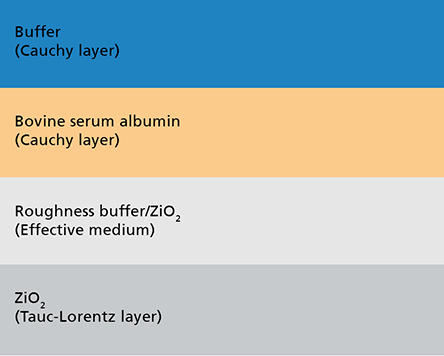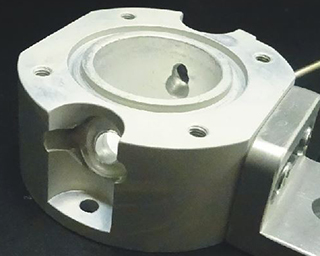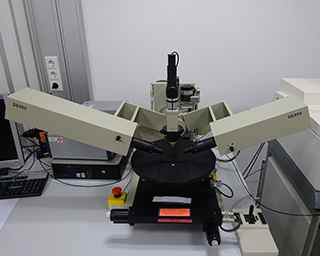Ellipsometry is a method used to analyze coat thickness and optical properties in thin films. It enables the non-destructive testing of transparent and partially transparent layers and surfaces with a maximum resolution of one nanometer or less. Main applications are the determination of layer thicknesses and indices of refraction for the manufacturers of multilayer systems, as well as microelectronics companies.
Use of ellipsometry for biological in-situ experiments
At Fraunhofer IKTS, ellipsometry is additionally used to research the adsorption of proteins with the help of a fluid cell. The fluid cell, when placed within the beam path of the ellipsometer, provides the researchers with direct insight into degradation and adsorption processes.
Currently, a fluid cell with a maximum volume of five milliliters and a diameter of 20 millimeters is available. The measurement method can be adapted for various applications.
Services offered for ellipsometry
- Coat thickness measurement (1 to 1000 nm)
- Determination of optical properties
- Static and dynamic coat thickness measurement
- In-situ: Analysis of degradation and adsorption (e.g. for corrosion, protein adsorption)
Technical details on ellipsometry
- SE850 spectroscopic ellipsometer: 240 to 850 nm (SENTECH Instruments GmbH)
- Large-scale, programmable mapping table
- Resolution: < 1 nm
- Multilayer systems consisting of transparent and semi-transparent materials
- Sample size for the fluid cell: < Ø 20 mm
- Non-invasive, non-contact measurement method
- Non-ionizing radiation


